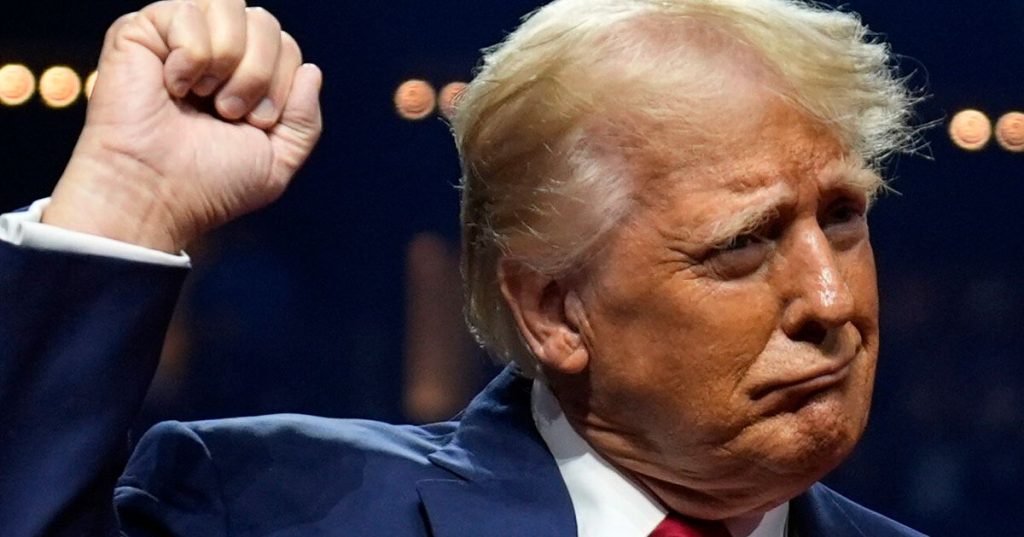Former President Donald Trump took to his Truth Social website to lash out at ABC, calling the network “FAKE NEWS” and criticizing some of its personalities by name. He singled out George Stephanopoulos, host of “This Week” and “Good Morning America,” asking where he was hanging out. Trump also questioned why he would participate in a debate against Kamala Harris on a network that he believes is biased against him. The debate was originally supposed to be between Trump and President Joe Biden, but with Biden no longer in the race and Harris as the Democratic nominee, Trump has been indecisive about whether or not he will participate.
Trump’s decision to attack ABC and question his participation in the upcoming debate drew criticism from his detractors who accused him of being afraid to face off against Harris. Despite initially agreeing to the debate, Trump’s remarks on social media led to speculation that he might back out. It remains to be seen if Trump will indeed participate in the debate against Harris or if he will ultimately decide against it. The controversy surrounding the debate highlights the ongoing tensions between Trump and the media, as well as his reluctance to engage in potentially unfavorable situations.
Trump’s use of his Truth Social website to express his grievances with ABC and the upcoming debate reflects his continued reliance on social media as a platform to communicate with his supporters and push his narrative. The former President has often used social media to bypass traditional media channels and convey his messages directly to his base. By criticizing ABC and raising doubts about the debate, Trump is appealing to his followers and seeking to control the narrative surrounding the event. Trump’s aggressive approach to media relations has been a defining feature of his political persona and continues to shape his interactions with the press.
The targeting of George Stephanopoulos and other ABC personalities in Trump’s social media posts demonstrates his willingness to personally attack individuals he perceives as enemies or adversaries. Stephanopoulos, a long-time journalist and political commentator, has been a frequent target of Trump’s criticism due to his perceived bias against the former President. Trump’s decision to mock Stephanopoulos and question his involvement in the debate reflects his combative approach to those he believes are aligned against him. This confrontational style has been a hallmark of Trump’s interactions with the media and political opponents throughout his time in office.
The ongoing feud between Trump and ABC, as well as his wavering decision on the upcoming debate, exemplifies the contentious relationship between political figures and the media in the United States. Trump’s attacks on ABC and his doubts about participating in the debate against Harris reveal the deep distrust and animosity that exist between the former President and certain media outlets. This dynamic has been a defining aspect of Trump’s political career and continues to shape the narrative surrounding his actions and decisions. As the debate approaches, it remains to be seen how Trump’s stance will evolve and whether he will ultimately commit to participating in the event.
Overall, Trump’s recent social media outburst targeting ABC and casting doubt on his participation in the upcoming debate against Kamala Harris underscores the ongoing conflicts between political figures and the media. The former President’s use of his Truth Social website to voice his grievances highlights his confrontational approach to communication and his willingness to challenge established norms. As the debate looms closer, Trump’s decision on whether to participate will continue to be closely scrutinized and may impact the broader political landscape. The controversies surrounding Trump’s interactions with the media serve as a reminder of the enduring conflicts and tensions that exist within American politics.








